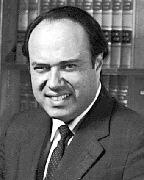Loans to condominium associations are a major change in condominium association practice over the past forty (40) years. When I first began practicing condominium law over forty (40) years ago, banks did not know how to make a loan to a condominium association. They wanted the unit owners to sign the note personally or, in the alternative, to sign a guaranty of the obligations of the association to the bank. Banks also wanted a mortgage on the units and the common areas. As a result, there were few loans; associations needing to raise funds normally made a special assessment against all of the unit owners.
When Chapter 183A, the Massachusetts Condominium Statute, was amended in 1993 to create a six (6) month priority or super lien, condominium association loans became more popular. The super lien made it easier for an association to collect condominium charges. This made banks feel more comfortable about accepting a security interest in the income stream.
Today, bank loans to a condominium association are quite common. The structure of the loans is now uniform.
The lender requires a note to be signed only by the association. In Massachusetts, the entity is usually a Trust but it can also be a corporation, a limited liability company, or an unincorporated association.
The unit owners do not sign or guaranty the note. This is good for the unit owners as the debt does not appear on their individual balance sheets.
The lender does not get a mortgage as security. The Board can pledge rights to future income. The Board cannot grant a mortgage on the common areas and facilities of the condominium because the common areas and facilities of the condominium are owned by the unit owners as tenants in common. The Board can grant a mortgage on any personal or real property actually owned by the Board but this is usually de minimis, for example, gardening equipment or office furniture in the case of personal property. Rather, the debt is collateralized by a Security Agreement, a Conditional Assignment of Revenue Stream, and a UCC Financing Statement. The security is the income stream the association receives from the unit owners in the form of the monthly payment of condominium fees. This income stream will always be there unless the condominium association gets into major financial difficulties.
This is obviously a win-win situation for associations, unit owners and lenders.
The role of the lawyer for the lender is first to review the condominium documents to make certain the association has the power to borrow money and to pledge the income stream of monthly payments as collateral. In the event this is not clearly stated in the condominium documents, the documents will have to be amended.
An attorney for the lender should review the commitment letter before it is signed.
The Organizational Documents which the attorney for the lender normally reviews are the consent minutes and the vote of Board of Trustees, the Master Deed and all Amendments, the Declaration of Trust and all Amendments, annual budget, board meeting minutes, a certificate of incumbency, and certificate of the Board of Trustees.
The lawyer must then prepare the loan documents, issue an opinion letter as to the authority of the association to borrow, and the enforceability of the loan documents by the lender.
Certain banks have developed this form of business. Others should follow suit as it is a safe and profitable area with the proper underwriting, loan processing and documentation.
More associations should realize that a loan can be preferable to a special assessment. This is especially true in the current market where interest rates are so historically low.
I would argue that before an association makes a special assessment, other than for a nominal sum, it should give serious consideration to a loan, and that more banks should get into the business of making loans to associations.
Loans to cooperatives require somewhat different documents but can also be done with little difficulty as long as the cooperative documents authorize such loans and the loan documents are properly drafted. Many years ago, I represented a bank lending to the CEO of a large Boston department store who wanted to borrow money from my client secured by a pledge of his stock in the cooperative, and an assignment of his lease. The cooperative documents were silent on borrowing and had to be amended before we could proceed. The cooperative, located in the Back Bay, had been created in the 1920s in a luxury building where apparently no one needed to borrow money to buy into a cooperative building.
Today, while most cooperative and condominium documents authorize borrowing, this cannot be taken for granted. The documents must clearly authorize borrowing. While some attorneys believe that the broad authority of the organization of unit owners is sufficient, in my opinion there has to be specific borrowing authority in the condominium or cooperative documents.
In any event, borrowing by an association is an important feature of common interest communities.
(Saul J. Feldman is a real estate attorney with Feldman & Feldman, P.C. in Boston
Tags:
Loans to condo associations are a major change in condo association practice over the last 40 years
March 28, 2012 - Spotlights









